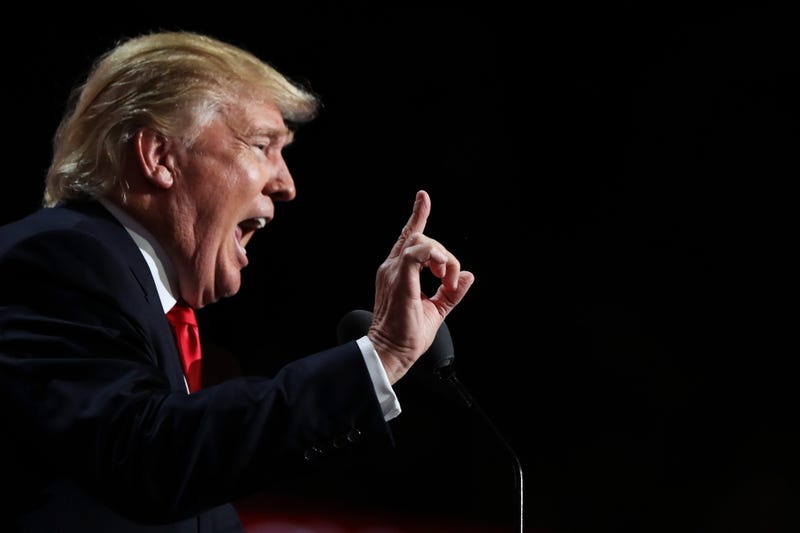
Last week, President Donald Trump said he did not initially share information about troop injuries that resulted from the Iranian missile strike of Jan. 8 because the concussive injuries sustained were not "serious injuries." Now the Veterans of Foreign Wars want an apology.
Since the January bombing, Central Command has periodically released information regarding the number of injuries that resulted from the retaliatory Iran missile strike. On Friday, the Pentagon confirmed the total number of injuries had reached 34.
But early reports from Trump and military leaders indicated that no U.S. troops were injured following the strike.
34 US troops diagnosed with concussions, TBIs from Iran missile strike, Pentagon says
“I’m pleased to inform you the American people should be extremely grateful and happy. No Americans were harmed in last night’s attack by the Iranian regime,” Trump said the day of the attack.
When asked by CBS News White House correspondent Weijia Jiang why he stated that no Americans were hurt in the retaliatory attack, Trump said he heard they had "headaches" and didn't "consider them serious injuries relative to other injuries I've seen."
Trump says he didn't mention injuries of US troops because they weren't 'serious'
"TBI is a serious injury and one that cannot be taken lightly," VFW National Commander William Schmitz said in a statement released Friday in light of the updated information on the total number of injuries. "TBI is known to cause depression, memory loss, severe headaches, dizziness, and fatigue — all injuries that come with both short- and long-term effects."
"The VFW expects an apology from the president to our service men and women for his misguided remarks," the statement continues. "And we ask that he and the White House join with us in our efforts to educate Americans of the dangers TBI has on these heroes as they protect our great nation in these trying times. Our warriors require our full support more than ever in this challenging environment."
Some members of Congress have similarly made statements against Trump's messaging regarding TBIs. For example, the co-chair and founder of the Congressional Brain Injury Task Force, Rep. Bill Pascrell, D-N.J. asked the Department of Defense "reiterate its commitment to the seriousness of brain injuries on the battlefield and elsewhere."
Congressman asks DoD to 'strongly affirm its commitment' to treatment of brain injuries
Others have defended Trump's statement. Army veteran Sen. Tom Cotton, R-Ark., told CBS News that Trump was not "dismissing" the injuries of these service members.
"He's not dismissing their injuries. He's describing their injuries," Cotton said. "If they are, in fact, if all these injuries are not serious, if they're all on the less serious side of the scale than the severe traumatic side of the scale, the president is just describing what happened there. He was not dismissing them."
Of the 34 service members diagnosed with concussions or TBIs, 17 have returned to duty in Iraq. Nine remain in Germany receiving treatment and eight were sent back to the U.S. for additional care.
"The military does a lot better job than it did 15 or 20 years ago when it comes to brain injuries," Cotton said. "When I was in Iraq, if your truck got blown up, you went and got your eyes checked out and probably sent on your way. They do a much better job today than they did then."
The Pentagon has communicated that more injuries still may be reported from the Jan. 8 attack.
"Given the nature of injuries already noted, it is possible additional injuries may be identified in the future," Capt. Bill Urban, spokesman for U.S. Central Command said on Friday, referencing the delay in symptoms characteristic of some concussive injuries.
—
